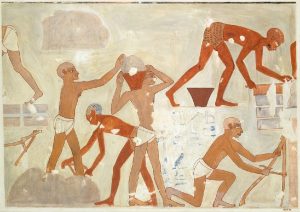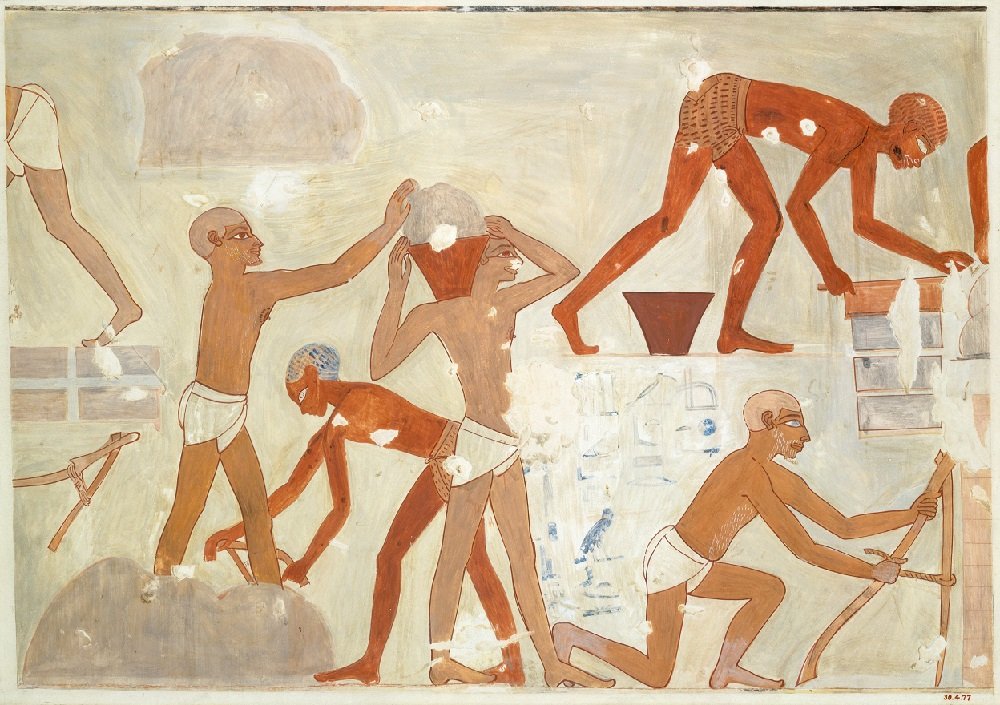This is an archive of prayers, songs, and other individual works relevant to the fifth course of the seder for Pesaḥ (Passover): Magid, the core of the Haggadah containing its midrash aggadah. Click here to contribute a work or a transcription and translation of a historical work that you have prepared for Magid in the Seder Pesaḥ. Filter resources by Collaborator Name Filter resources by Tag Filter resources by Category Filter resources by Language Filter resources by Date Range
This letter, written in Imperial Aramaic in 419 BCE, is among the vast number of papyrus letters found in Elephantine, also known as Yeb. The Jewish (or more accurately, Judean) community of Yeb is a fascinating bit of history — a group of Judean mercenaries who settled in Egypt and built their own smaller temple! Although their origin was clearly Judean, and they referred to themselves as the ḥeila yehudaya = Judean garrison, their form of worship featured no Deuteronomic centralization, no discussion of the patriarchs, and questionable monotheism! Although the primary deity was YHW (note the difference in spelling), multiple other deities or hypostatized aspects of divinity were worshipped, and verbs for the word “God” are conjugated in the plural rather than the singular. This text is one of a series of letters written between the brothers Yedaniah and Ḥananiah. In this case, it is giving instructions for keeping the holiday of Pesaḥ. These instructions are interesting in their own right — the prohibition on beer could alternatively be read as a prohibition on any alcoholic drink, which would align with Karaite practice rather than rabbinic. But what’s even more interesting is what isn’t mentioned — the instructions given mention nothing whatsoever about the exodus from Egypt, or even God! The diktat to observe the holiday is accredited not to God or Moses, but to Darius, king of the Achaemenid Empire! This passage is a fascinating taste of a part of Judaism that we know very little about. Vocalization according to Tiberian norms and translation into English by the translator. . . . Categories: Tags: Contributor(s): Itti Bishlam is a sixteen-hundred year old Samaritan Aramaic poem attributed to the great Samaritan sage Marqeh son of Amram. In twelve stanzas it tells the story of the night of the tenth plague and the Exodus. Samaritans traditionally recite it on the night before the holidays, the Sabbaths before the holidays, and the evening before the first day of the first month (the Samaritan new year, fourteen days before Passover). Largely a half-alphabetical acrostic, the fifth stanza of Itti Bishlam begins with an īt (ḥeth) rather than the expected īy (her), understandable considering the loss of guttural distinctions in Samaritan phonology. (See the number of Jewish poems which confuse sin and samekh for a parallel occurrence.) Itti Bishlam is, interestingly enough, lacking polemic or sectarian content — it never calls upon the Samaritan holy mountain of Aargaarizem (Mt. Gerizim), nor does it include any context that contradicts the traditional Jewish interpretation of the paschal narrative. It is worthwhile for Jews to learn about and understand the liturgical practices of their sister religion, and this poem is a great place to start! . . . Categories: Tags: 41st century A.M., 4th century C.E., Aramaic, Defter, Israelite-Samaritan, Late Antiquity, Marqeh son of Amram, פיוטים piyyuṭim, Samaria, Samaritan, Nusaḥ haSamerim Contributor(s): |



